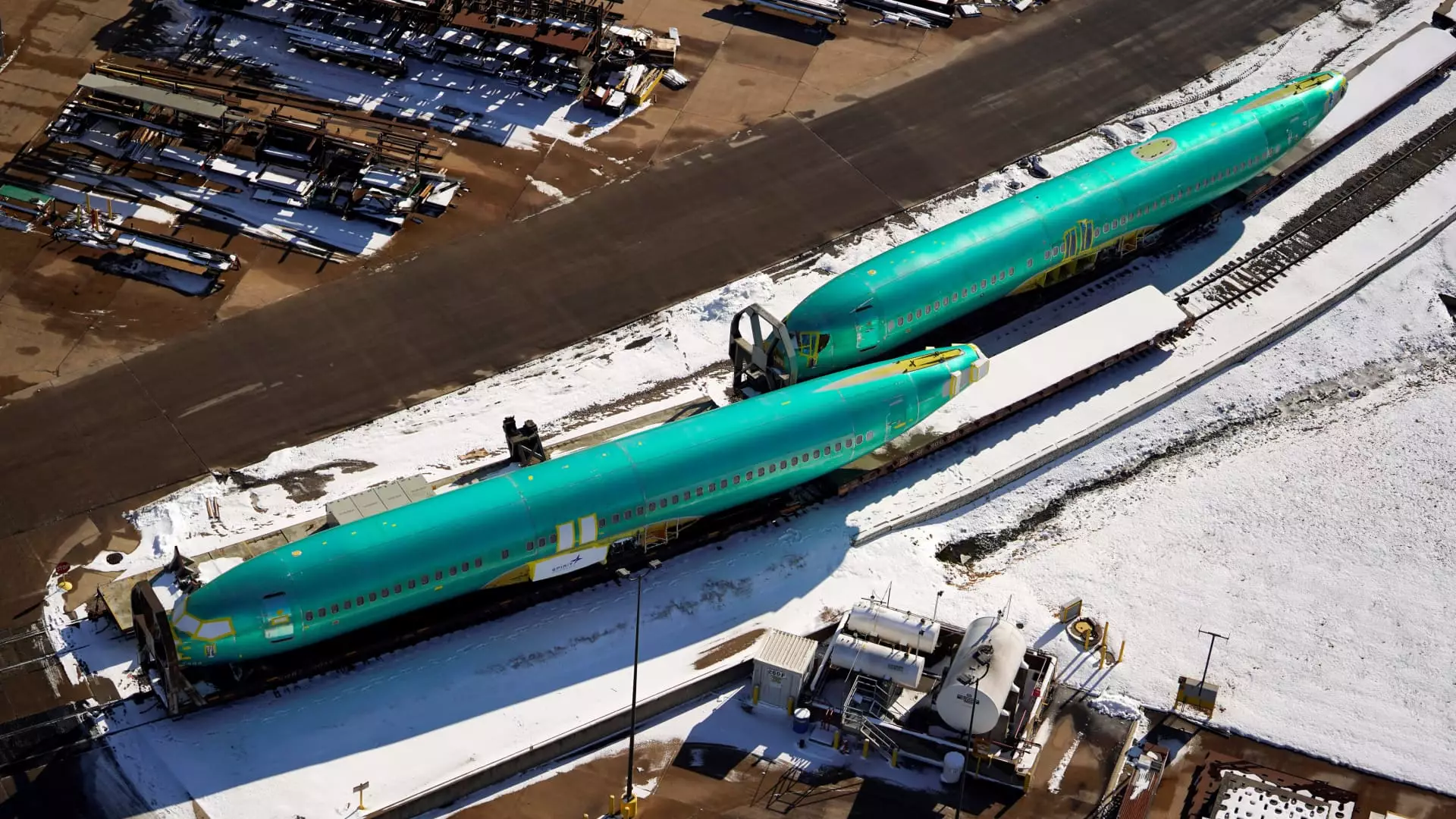The Impact of the Boeing Strike on Spirit AeroSystems: A Looming Crisis

The ongoing strike at Boeing has thrust Spirit AeroSystems into a precarious situation, forcing the supplier to announce a furlough for approximately 700 of its employees. This development points to a cascading series of challenges faced by the aerospace industry, particularly as Boeing grapples with the fallout of labor disputes that have disrupted its operations significantly.
Since its onset on September 13, the strike has seen over 32,000 Boeing employees abandon their posts, rejecting an earlier labor agreement. This mass walkout has exacerbated Boeing’s financial difficulties and heightened the pressure on its new CEO, Kelly Ortberg, who is already tasked with steering the company through turbulent waters. As the dispute elongates into the sixth week, it intensifies the uncertainty surrounding Boeing’s production timelines and financial health, while casting a shadow over its supply chain, including critical partners like Spirit AeroSystems.
Spirit AeroSystems, responsible for producing key components for Boeing aircraft, now finds itself impacted directly by the strike’s ripple effect. The furlough of about 700 workers, which accounts for 5% of Spirit’s U.S. workforce, predominantly affects employees in Wichita, Kansas. These are critical roles tied to the stalled 777 and 767 programs where work has come to a standstill due to labor disruptions. The furloughs act as a signal of broader instability, showcasing how interlinked the supply chain is within the aerospace sector—when one link falters, others inevitably suffer.
The longer the strike persists, the greater the likelihood of layoffs becoming necessary, as noted by Spirit’s spokesman, Joe Buccino. The immediate implications could lead to significant financial pressure for Spirit, compounded by Boeing’s parallel strategies to slash costs, which may inadvertently diminish demand for Spirit’s components in the long run. Moreover, Boeing’s decision to halt commercial production of the 767 by 2027 and push back the long-awaited 777X debut places additional strain on the already loaded backlog Spirit faces.
As Boeing pursues options to increase liquidity by securing loans or equity, the future of its agreement with Spirit remains squirrelly. Although plans have been laid out for Boeing to acquire Spirit, the anticipated closure of the deal shifting to mid-2025 raises questions regarding the long-term vision for both companies. With the ongoing strike and the potential for further furloughs and layoffs, the stakes for both Boeing and Spirit could not be higher.
This juncture in the aerospace sector underscores the intricacies involved in labor relations and supply chain dependencies. The entwined fates of Boeing and Spirit AeroSystems highlight the urgent need for resolution and strategic reevaluation to mitigate the risks posed by prolonged strikes. For industry stakeholders, the path forward involves navigating these turbulent waters carefully as they brace for the repercussions that lie ahead.





